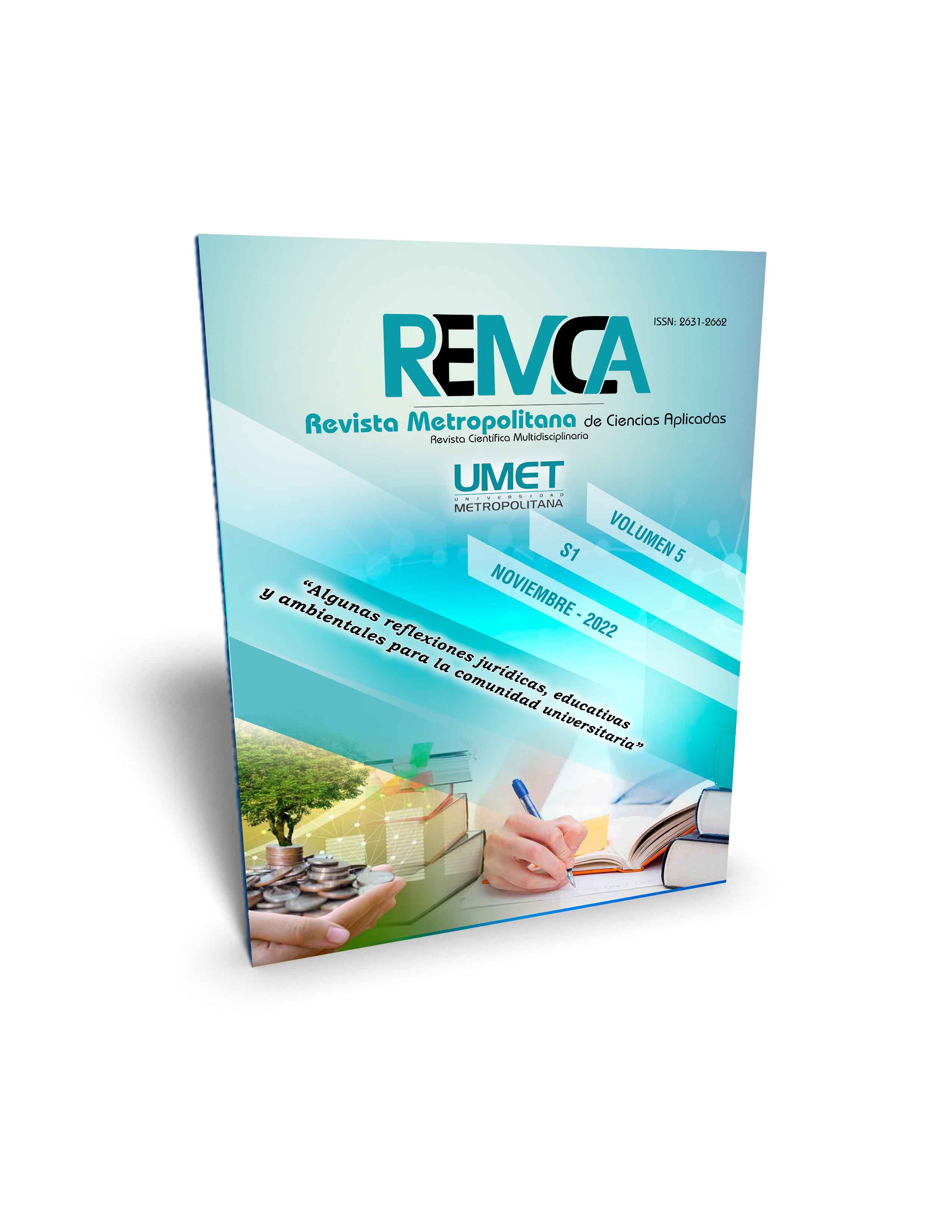The transfer of judicial servants to due process in Ecuador
DOI:
https://doi.org/10.62452/4fpzx315Keywords:
Transfer, judicial servants, due processAbstract
The transfer of judicial servants under Ecuadorian law is part of a problem that has not been addressed from a normative point of view, but rather from a practical point of view, referring to conflicts that have arisen as a result of the transfer, which leads to violations of rights such as due process and guarantees of reasons. Therefore, the aim of this article is to analyse the transfer of judicial servants in relation to due process in Ecuador. To this end, a qualitative approach was used together with the hermeneutic method for the literature and documentary review, which contributed to the resolution of the problem, where it is found that the transfer of judicial servants does not have due process to guarantee an effective change that does not affect their Project life and their rights.
Downloads
References
Argentina. Consejo de la Magistratura. (2019). Reglamento de Traslado de Jueces. B.O. Resolución N.º 270/2019. https://www.argentina.gob.ar/normativa/nacional/resoluci%C3%B3n-155-2000-63716/actualizacion
Carvajal Sánchez, B. (2010). Alcance y limitaciones del debido proceso en el procedimiento administrativo. Revista Digital de Derecho Administrativo, 4, 7–21.
Consejo Nacional de la Magistratura del Perú. (2010). Reglamento de Traslados de Jueces del Poder Judicial. https://www.pj.gob.pe/wps/wcm/connect/6efcc2004c867a0b81f6bd7ee8aa914d/REGLAMENTO_TRASLADOS_JUECES_PJ_120710.pdf?MOD=AJPERES&CACHEID=6efcc2004c867a0b81f6bd7ee8aa914d#:~:text=Art%C3%ADculo%2050%2C%2D%20El%20traslado%20es,establecen%20taxativamente%20en%20este%20reglamento.
Cornejo Aguiar, J. S. (2020). Estudios de Derecho Procesal Administrativo Conforme al COA. CEP.
Creswell, J. W. (1998). Qualitative Research Inquiry and Research Design. Choosing among Five Traditions. Sage Publications Ltd.
Ecuador. Asamblea Nacional. (2015). Código Orgánico de la Función Judicial. Registro Oficial Suplemento 544. https://www.funcionjudicial.gob.ec/www/pdf/normativa/codigo_organico_fj.pdf
Maliza Cerezo, G. C., & Bastidas Vaca, C. A. (2019). Efecto de la carga laboral y la rotación del personal en la productividad de los servidores judiciales en el Consejo de la Judicatura de Los Ríos, Ecuador en el año 2018. Ciencia Digital, 3(3.3), 30-43.
Pérez, A. (2000). La Seguridad Juridica una garantia de derecho y la Justicia. Boletín de la Facultad de Derecho, 15.
Prado Calderón, E.B. (2021). Revista Scielo: Procedimiento de selección de jueces en Ecuador. 8(SPE3).
Robledo Maza, S. E. (2018). La garantía del debido proceso en el arbitraje. (Tesis para optar el título de Abogado). Universidad de Piura.
Oyarte Martinez, R. (2016). Debido proceso. Corporación de Estudios y Publicaciones.
Downloads
Published
Issue
Section
License
Copyright (c) 2022 Angeles Yuliana Castillo Tasipanta, Jorge Mateo Villacrés López (Autor/a)

This work is licensed under a Creative Commons Attribution-NonCommercial-ShareAlike 4.0 International License.
Authors who publish in Revista Metropolitana de Ciencias Aplicadas (REMCA), agree to the following terms:
1. Copyright
Authors retain unrestricted copyright to their work. Authors grant the journal the right of first publication. To this end, they assign the journal non-exclusive exploitation rights (reproduction, distribution, public communication, and transformation). Authors may enter into additional agreements for the non-exclusive distribution of the version of the work published in the journal, provided that acknowledgment of its initial publication in this journal is given.
© The authors.
2. License
The articles are published in the journal under the Creative Commons Attribution-NonCommercial-ShareAlike 4.0 International License (CC BY-NC-SA 4.0). The terms can be found at: https://creativecommons.org/licenses/by-nc-sa/4.0/deed.en
This license allows:
- Sharing: Copying and redistributing the material in any medium or format.
- Adapting: Remixing, transforming, and building upon the material.
Under the following terms:
- Attribution: You must give appropriate credit, provide a link to the license, and indicate if any changes were made. You may do this in any reasonable manner, but not in any way that suggests the licensor endorses or sponsors your use.
- NonCommercial: You may not use the material for commercial purposes.
- ShareAlike: If you remix, transform, or build upon the material, you must distribute your creation under the same license as the original work.
There are no additional restrictions. You may not apply legal terms or technological measures that legally restrict others from doing anything the license permits.




